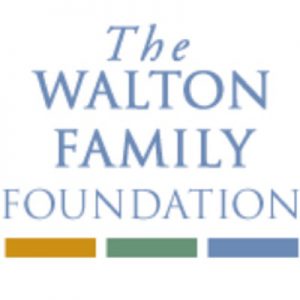 Update: This Aspen Institute youth leadership opportunity has been extended; applications can now be accepted until February 11, 2018 (apply here).
Update: This Aspen Institute youth leadership opportunity has been extended; applications can now be accepted until February 11, 2018 (apply here).
The following article announcing the program was in Mississippi Today.
Washington based initiative that focuses on youth leaders expands to the Delta
By AALLYAH WRIGHT
Education Reporter, December 13, 2017
CLARKSDALE – Up to 24 young people between the ages of 16 and 20 who live in Coahoma or Philips counties will have the opportunity to participate in a national youth leadership program starting in April.
The Aspen Institute, a Washington, D.C. based nonprofit educational and policy studies organization, is partnering with the Walton Family Foundation to launch the Aspen Young Leaders Fellowship in a rural area for the first time. They plan to select two cohorts of young leaders from these counties over the next two or so years.
The Aspen Young Leaders Fellowship is a “place-based, multi-site initiative that will inform the next generation of local, purpose-driven leaders”, which is a part of the institution’s goal to empower youths to become prosperous leaders in their communities, the website states.

The fellowship’s goals are also to help youths build a strong community network, effectively communicate ideas, develop purpose and vision for the greater good of the community and gain access to a global network.
All in all, the program provides young people with the tools to become effective change agents in their communities.
Since the program launched nine months ago, the institute has only reached youth in urban areas in St. Louis, MO and Newark, N.J.
So why the Delta?

Tre Maxie
“I’ve always said a lot of rural youth are left out of a lot of programs because a lot of [the programs] are in the city. They tend to cover urban and suburban youth,” said Tre Maxie, Division Director for the Youth & Engagement Programs at Aspen.
He added that members of their board, advocacy leaders and funders from this region believe in the area young people which is another reason the program is being brought here in the spring.
“I’m excited about the opportunity to launch our work and what we think will work to help young people become great citizens and great people of the Earth with rural youth — which brings a different set of experiences and different set of opportunities for us to have an impact,” said Maxie.

Zakiya Reid
According to Zakiya Reid, Program Director, the fellowship is 15 months consisting of three-day orientations, nine seminars and more that will lead to a seven week paid internship that focuses on a social venture project. Students will receive $300 per week for the internship.
The application period is open now and closes on February 11, 2018. Click here to apply.
Young people will get an opportunity to dig into issues that are going on in the community and create a response to those issues. The goal of the project is to address community need while creating jobs to fulfill it and to keep fellows in the area to continue to build the project.
Fellows also have the option of becoming alumni, travelling to national conventions and attending the inaugural national youth convening.
The fellowship needs more than young people to make a difference. They need the help of the community, especially those interested in being a member of the advisory board, or to serve as the fellows’ success coach.
The advisory board will meet quarterly, and their role is to give support and feedback to help shape the program while also receiving updates on what the students are learning, issues they’re addressing and what else needs to be included in the program. The job of the success coach is just that – to make sure the fellows are being successful in the program.
Some of the challenges the program has seen thus far include competing with fellow’s schedules, diversifying the curriculum and shortening the program, which was noted as a pro and con.

Emily Dean
In terms of following the success of the program, every seminar the participants must complete a survey. Emily Dean, Program Associate for the fellowship, said there have been high scores in relation to students feeling a sense of belonging in the cohort space as well as leadership efficacy.
Teaching youths different skill sets on how to engage is the key, said Reid. She said the skills sets they’re teaching isn’t anything new, but it’s the way they’re teaching students how to engage in questioning that is new. Understanding people and places, making observations, and increasing empathy are all a part of becoming effective leaders.
“You can’t lead people if you don’t understand them or their needs or what they’re asking for or not asking for,” she said. “The skills aren’t new, but how we go about teaching them is new and valued by the fellows.”
In the next few months, the institute is going to engage with community members, school officials, program advisors and others to learn more about the area.
For more questions on how to get involved or learn more, contact Rashon.Hasan@aspeninstitute.org.
Editor’s note: The Walton Family Foundation is a funder of Mississippi Today.
About Aallyah Wright

Aallyah Wright
Aallyah Wright is a Clarksdale native and a graduate of Delta State University with a degree in journalism with a minor in communications and theater. Before joining Mississippi Today as a Delta-based reporter, Aallyah worked as an intern for the Bolivar Commercial in 2016. She also has worked collaboratively with the Center for Investigative Reporting and Reveal alongside the Delta Arts Alliance on an ongoing interactive community news project that created a platform for stories from Cleveland, Miss., through the lens of history, equality and change titled the Cleveland Yearbook.